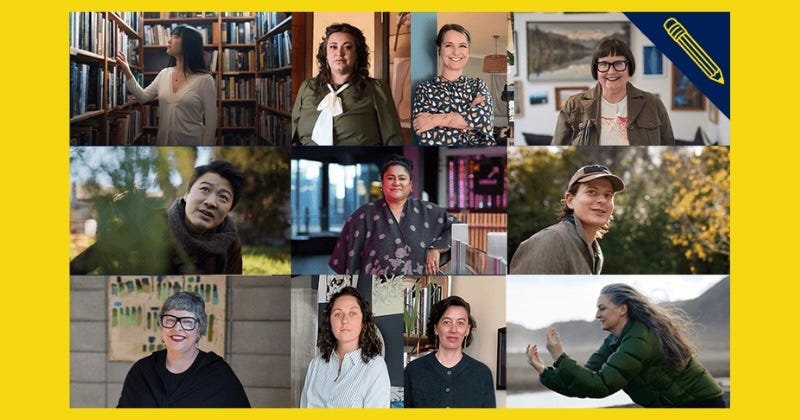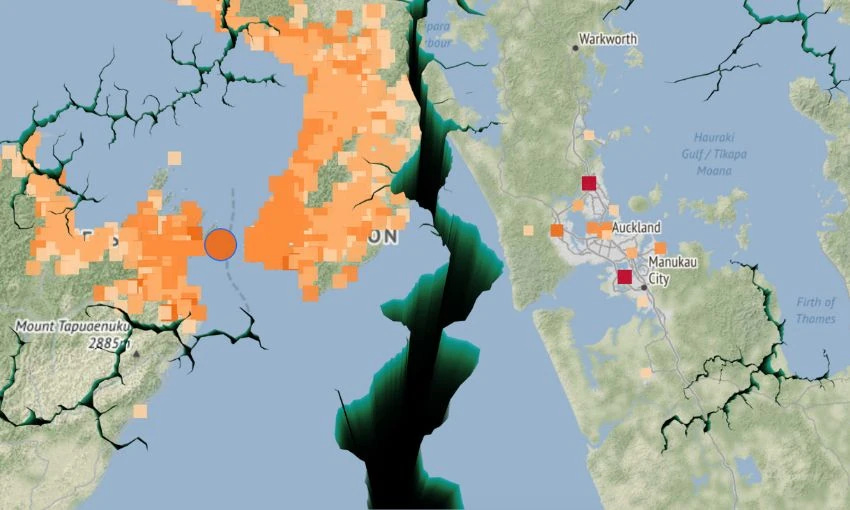Luxon in Laos: PM meets with Modi as time ticks on inking India free trade deal
Christopher Luxon is unlikely to visit India this side of Christmas, but says the meeting with Narendra Modi was 'fantastic'.
Mōrena, and welcome to The Bulletin for Friday, October 11.
In today’s edition: Wellington Council votes down airport share sale, the state of the government’s books are “sobering”, and how did a chronic shortage of nurses become “too many”? But first, Christopher Luxon scores a diplomatic win in whirlwind trip to Laos.

A whirlwind visit to Laos
The prime minister has been in Laos for just a day, and by tonight he’ll be winging his way home again. Christopher Luxon has travelled to the landlocked nation to attend the annual East Asia Summit, explained The Post, and intended to use his brief time on the ground to “discuss strategic issues, which continue to be on an increasingly challenging trajectory across the Indo-Pacific”. But more crucially for New Zealand, reported the Herald’s Jamie Ensor, Luxon has had the opportunity to rub shoulders with senior representatives from key nations such as the United States, China and India. “If you think about all the countries that want to get to the door of the White House, or the door of the premier of China, or the door of the prime minister of India, those are hard opportunities to make happen,” David Capie, a professor of international relations at Victoria University, told the Herald.
Overnight, Luxon met on the sidelines of the summit with Australia’s Anthony Albanese and Canada’s Justin Trudeau, reported RNZ’s Craig McCulloch. The trio have issued several joint statements about the ongoing conflict in the Middle East, and the informal catch up at a Laotian café was expected to focus on this. "We are like-minded in pushing for de-escalation of the violence, protection of civilians and humanitarian aid coming in, and also all of us are committed to a path to a two-state solution,” Trudeau said before the meeting.
Asia a critical focus
Christopher Luxon only made his first trip to Dunedin as prime minister over the weekend, but by my count he’s currently visiting his fifth South East Asian nation. It underscores his government’s dedication to building ties with other regions – particularly South Aast Asia. In an interview with Newsroom’s Laura Walters before a previous visit to the region, the prime minister said he wanted to see a “reprioritisation and a much bigger deepening and strengthening of the relationships across the whole of Southeast Asia”.
Walters also reported that Asean leaders were calling for more involvement from us as well, and in a further interview with Newsroom, Luxon added: “You want to make sure New Zealand never, ever, loses influence”.
A big meeting
One crucial meeting that Luxon secured while in Laos was with India’s prime minister Narendra Modi. It’s the first time the pair have met in person, though they have had conversations previously. Luxon’s predecessor, Chris Hipkins, had a brief one on one conversation with Modi during a flying visit to Papua New Guinea last year, as I reported from the ground at the time. An offer to visit India was extended to the former PM and Hipkins promised to head there within 100 days of his next term, but the election result clearly took that off the table (as BusinessDesk’s Dileepa Fonseka pointed out, that would have clashed with India’s election anyway).
Stuff’s Glenn McConnell reported that Luxon has had a similar invitation extended to him while in Laos, though it may not happen before the end of the year. “It was just very difficult for us to practically make it happen between now and Christmas, and then New Zealand has its summer holiday,” Luxon said.
Time ticking on India FTA promise
Speaking to local media, Luxon said he is a “big fan of India” and called the meeting with Modi “fantastic”. “We look forward to continuing to deepen and broaden that relationship as well”.
The meeting with Modi isn’t simply a chance for two leaders to catch up. Luxon and the coalition have set a particularly serious target for bolstering the New Zealand-India relationship. While on the campaign trail, Luxon pledged to ink a free trade deal with India before the end of his first term, describing it as a “priority”. That’s no mean feat given talks first started more than a decade ago under prime minister John Key, before stalling about 2016. As The NBR’s Brent Edwards wrote last year (paywalled), one major stumbling block is India’s opposition to opening its markets to dairy and meat exports from New Zealand.
Since the election, little firm progress has been made on advancing this, though the trade minister, Todd McClay, has visited the nation on three occasions. Speaking to media before his meeting with Modi, the prime minister said he remained confident a trade deal could be struck this term and hoped the face-to-face meeting would help deepen his relationship with the influential world leader.
Join our community of supporters
"I like that it feels like chipping in for a good cause, rather than paying for a subscription." – Kimberley, Spinoff member.
Whether you read, listen to or watch our mahi, you can support us to do more by donating today or signing up to become a member. Already a member? Ka nui te mihi, your support means the world to us.
Confusion reigns as Wellington Council votes down airport share sale
Wellington Council’s long term will need to be amended after a decision to stop the sale of its 34% share in the city’s airport was made last night. Writing for The Post, Tom Hunt said those at the council meeting yesterday witnessed “an overwrought and cynical display of highly paid virtue signalling and a badly damaged mayor”. It’s a major loss for mayor Tory Whanau, who had been lobbying behind the scenes for a sale and who desperately needed a win after several high profile embarrassments in recent months.
I’m no expert on any of this, so I’ll hand you over to The Spinoff’s Wellington editor Joel MacManus who was at the meeting yesterday and gave me three takeaways:
It's a loss for Tory Whanau, but may have silver linings. This was an entirely avoidable controversy that was dragging her down. It's embarrassing for a mayor to lose on an issue they're so closely tied to, but at least now she can rebuild her relationship with the activist left without being seen as "the mayor who sold the airport".
It showed the power of Te Tiriti. When representatives from Taranaki Whānui told the council that their actions represented a breach of partnership agreements, it became difficult for anyone on the left to support. Taranaki Whānui didn't have a strong view on selling vs not selling, but did have strong views on the decision to vote in council vs committee (where iwi representatives have a vote).
It's a win for the union movement, which showed that it is still capable of driving mass campaigns and causing change.
Crown accounts show largest deficit since 2020
The state of the government’s books are “sobering”, the finance minister Nicola Willis said yesterday, with the annual operating deficit rising to nearly $12.9 billion in the year to June, up $3.4bn on the prior year and $1.8bn more than forecast in the May Budget. As Interest’s Dan Brunskill noted, this is the largest annual deficit since the early days of Covid-019 in 2020. Willis said that the performance of state owned enterprises and Crown entities were to blame as opposed to core government departments.
Nevertheless, the finance minister said she was still committed to getting back into surplus by the end of June 2028. The crown accounts underscored the need for ongoing spending discipline, said Willis. “With prudent control of spending, the government does not see any need to seek major additional sources of revenue.”
Listen: The fiscal missionary
Meanwhile, finance minister Nicola Willis joins Bernard Hickey on When the Facts Change this week. Willis is on a mission to crunch the size of government debt from well over 33% of GDP to under 30% within a few years, as well as fire up growth in an economy experiencing its worst-ever recession per capita. Doing one would be hard, but both at the same time seems a mission impossible for a politician wanting to win a second term. Bernard asks her how the government will both keep its promises and engineer even bigger spending cuts in per capita terms than those delivered by Ruth Richardson in the early 1990s.
Art, time and money: The true cost of creativity
Over the past four months we’ve been talking to prominent artists across the motu about their creative processes and working lives. Installation artists Mataaho Collective, novelist Pip Adam and composer Cadence Chung are just a few of the creatives who’ve discussed the joys and struggles of making art in Aotearoa for the second series of Art Work, created in partnership with Creative New Zealand. Now Sam Brooks looks back at what we’ve learned from these conversations, and how the lessons can be applied by the creative sector writ large. Read Sam’s story here.
Click and Collect
How did a chronic shortage of nurses become “too many”? The Spinoff’s Alice Neville pieces together the timeline.
Marc Daalder has the third piece in his series looking at Long Covid, exploring why the government has no plan to address the debilitating illness.
Did you know there is an election going on in Auckland at the moment? Toby Manhire explains what Entrust is and why it seemingly all comes down to the sweet, sweet dividend. Meanwhile, The Post speaks with one of the contenders hoping to end three decades of control by one group over Auckland’s power decisions.
In an extraordinary press conference yesterday, Judith Collins powerfully took aim at online trolls that had blamed the sinking of HMNZS Manawanui on the gender of the captain.
New figures show the public service workforce shrank by 3.3% in the first six months of 2024 to 63,537 people. The government wants to see further cuts.
Hurricane Milton wasn’t the “worst case scenario”, though five are dead and millions without power. The Otago Daily Times speaks with a Southlander bunkered down in Tampa.
Join us for a one-night only live event
We’re huge fans of local television here at The Spinoff, and for one night only we want to celebrate some of our all-time faves. Join Alex Casey, Kura Forrester, Rhiannon McCall, Stewart Sowman-Lund and Lyric Waiwiri-Smith at Q Theatre on October 31 as we unearth some beloved TV gems and argue for their place in our history.
Lyric Waiwiri-Smith investigates the Aucklander who claims to feel every single earthquake in New Zealand. Duncan Grieve wonders if a “Canadian compromise” could resolve the high stakes standoff between Google and NZ news media.Alex Casey bemoans The Warehouse's unheimlich mockery of beloved song Mambo No. 5 in a new advertisement. The Insider Insider gets inside the New Zealand Herald's empire of Insider columns. Henessey Griffiths spends a night at the APRA Silver Scrolls, a beacon in uncertain terrain. Shanti Mathias reflects on what she learned through 4 years of home education. Hera Lindsay Bird advises a reader who apologises so much they annoy everyone around them.
That’s it for another week, thanks for reading. Have a great weekend, I’ll see you on Monday.
Want to get in touch? Join the conversation in the Substack comments section below or via email at thebulletin@thespinoff.co.nz if you have any feedback on today’s top stories (or anything else in the news).
If you liked what you read today, share The Bulletin with friends, family and colleagues.














What a total ahole he is. A 'fan of india' but he totally feels the opposite for Maori in his current country, he is just despicable!!
Better to get a monkey to be MP.